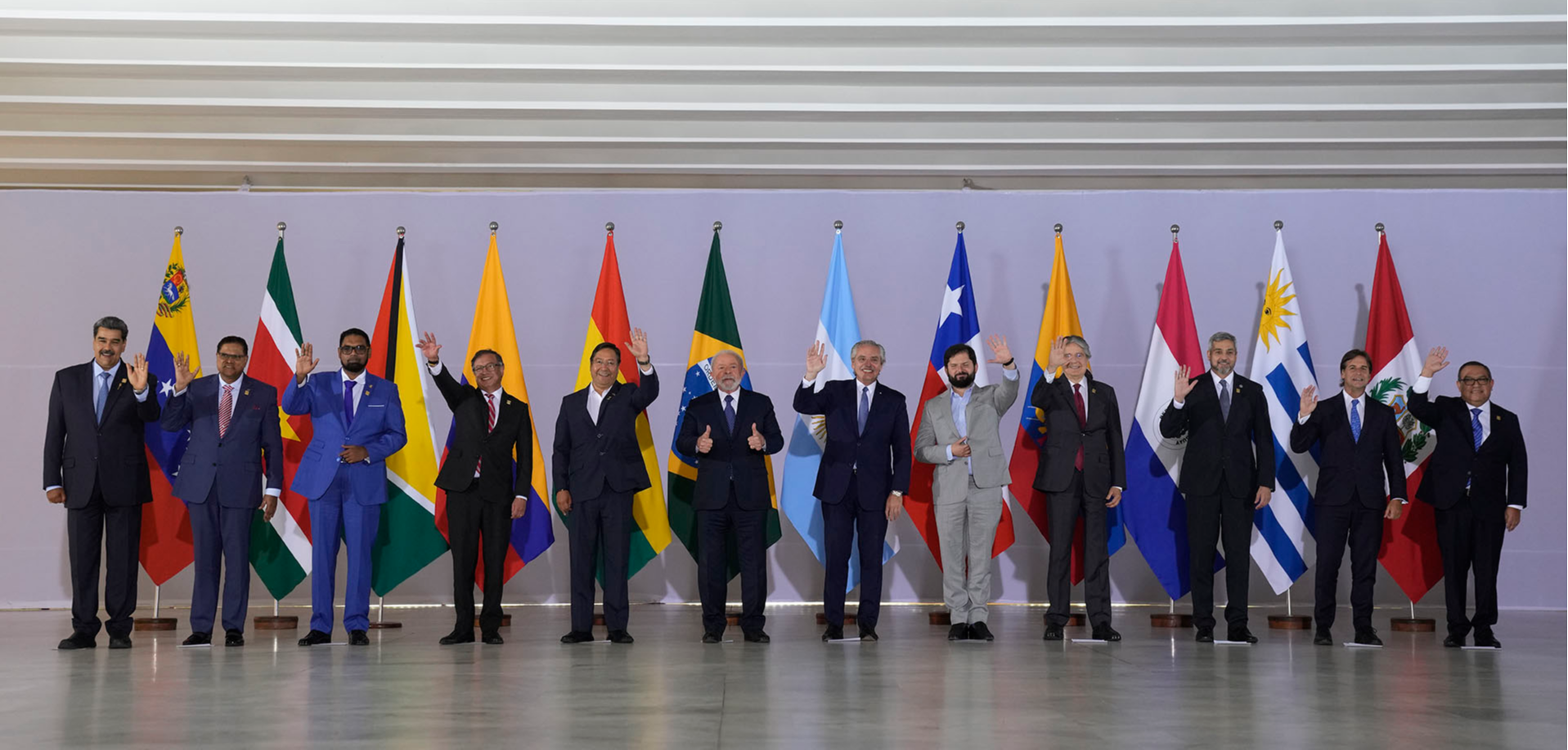
South American presidents once again raised their voices in favor of cooperation and integration.
(Photo:PL)
By Roberto Morejón
The presidents of South America once again raised their voices in favor of cooperation and integration, after the eclipse of UNASUR, whose acronym they preferred not to mention, because they bet on seeking consensus towards another space of confluences.
Under the effective leadership of the Head of State of Brazil, Luiz Inacio Lula Da Silva, eleven presidents and a prime minister convened by the former labor leader approved at a meeting the so-called Brasilia Consensus, in which they reaffirmed the vision of a region united by respect, dialogue and peace.
Improvements in trade, calls for the defense of sovereignty and non-interference in internal affairs and emphasis on the importance of advancing in the fight against poverty, were also included in the final document or were presented in speeches at the conclave.
With the determination to meet again at a date and place to be determined to review the proposals of a contact group that will evaluate the experiences of the integration mechanisms, the meeting convened by Lula concluded and in which, fortunately, the statesmen recognized the importance of dialogue and projecting the voice of South America in the world.
Beyond the important agreements derived from the summit in Brasilia and the fact of being reunited after a long waiting period, Venezuela's adhesion to the meeting stood out.
Although there were some opinions that followed the narrative of the stereotypes coined by the United States and the extinct Lima Group to isolate Venezuela, the truth is that Venezuela and its president Nicolás Maduro returned to the regional diplomatic context, from which they should not have left.
Maduro did not want to respond to those who alleged old stories and recalled that all the world power pounced against him and Donald Trump applied 900 measures and sanctions against the national economy.
The Venezuelan ruler, who had previously made a historic official visit to Brazil after eight years of his last trip, reaffirmed the willingness to resume the union between the bordering countries, for the good of the peoples.
Brazil was distanced from Venezuela because the ultra-right-wing former president Jair Bolsonaro imposed an ideologization in foreign relations.
Ideologization that the rulers of South American countries claim to want to leave aside to resume cooperation.

